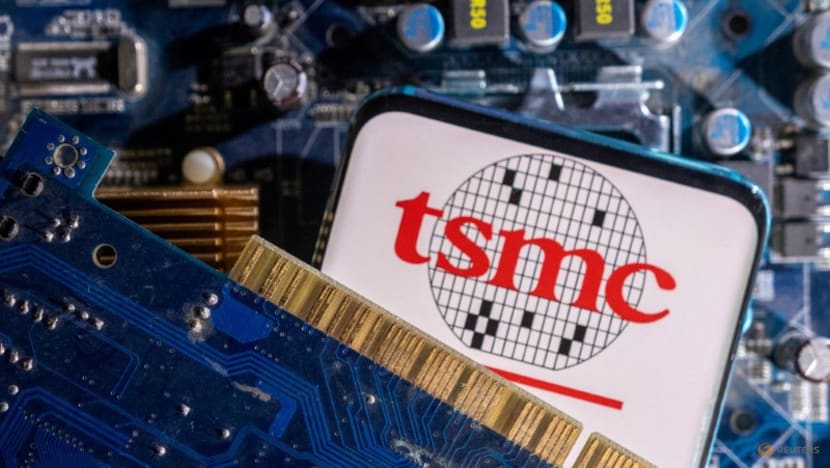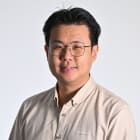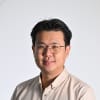Taiwan chip giant TSMC's survival in focus as cross-strait tensions grow
Taiwan alone makes about 70 per cent of the world's semiconductors, and more than 90 per cent of the highest-end ones.


This audio is generated by an AI tool.
All tech applications, from missile systems to e-payment gateways – even the screen you are reading this article on right now – rely on chips.
This vital component is produced by just a handful of companies, most of which are located in East Asia.
Taiwan alone makes about 70 per cent of the world's semiconductors, and more than 90 per cent of the highest-end ones.
A chip is a grid of millions or billions of data transistors, carved onto a silicon wafer using extremely precise means.
The Taiwan Semiconductor Manufacturing Company (TSMC) stands alone in its ability to pack the highest number of transistors onto wafer surfaces.
Six decades ago, when the world's first chip was invented, it carried just four transistors.
Today, the TSMC-made processor, which is used in Apple's latest iPhones, boasts more than 16 billion transistors.
The chip giant recently also produced what has been hailed as the world's most powerful chip – Nvidia's Blackwell 200 – which features a whopping 208 billion transistors.
Taiwan's extraordinary chip success has been driven by its mastery of volume, thanks to incredibly efficient manufacturing.
Observers say its secret to success boils down to three attributes: foresight, dedication and talent.
HOW TAIWAN’S CHIP BOOM STARTED
In the 1970s, the Taiwanese government made strategic investments in the semiconductor sector to capitalise on the surge in chip demand.
Top engineers with knowledge in cutting-edge technology were recruited worldwide to pioneer advancements in chip manufacturing.
Institutions were set up and heavily invested in to foster domestic talent and ensure the long-term sustainability of the sector.
One great visionary the government recruited was Mr Morris Chang, known today as the “godfather” of Taiwan’s chip industry.
Born in the Chinese city of Ningbo in Zhejiang province, Mr Chang moved to the United States in 1949 to attend Harvard University.
He joined Texas Instruments in 1958 and rose to become the firm’s vice-chairman over the next 25 years.
In 1985, two years after he lost the race to be CEO, Mr Chang accepted the Taiwanese government’s invitation.
He went on to found TSMC in 1987 and pioneered the pure-play foundry business model in Taiwan.
“The scale of the industry, as well as its development prospects, seemed infinite at that time. Anyone already with a foothold in the US semiconductor industry – especially if you are Chinese – would not think of going to Taiwan to start a new semiconductor company,” said financial commentator Danny Ruan.
“Against this backdrop, (Morris Chang's decision to go to Taiwan) showed his personality traits. He is a visionary with pioneering ideas.”
Professor of leadership and organisation development at Taiwan’s National Chengchi University Lee Swee-huat described Mr Chang as a holistic leader with a vision strategy, sound knowledge in building systems and processes, as well as an advocate of strong company culture.
“He set very high aspirations and standards for the company to provide cheap manufacturing services with premium quality and premium pricing, which set the tone for how the company evolved, even today,” said Prof Lee, who is also a former human resources vice president at TSMC.
DAWN OF A NEW ERA
After three decades at the helm, Mr Chang retired from TSMC in 2018.
Since his retirement, the role of chairman and CEO has been split between company veterans Mark Liu and CC Wei.
Mr Liu is set to retire in June, with Mr Wei named to succeed him. When Mr Wei takes on both roles, TSMC will return to having a unitary leadership position.
Mr Wei will have his work cut out for him, with rivals such as South Korean tech giant Samsung vying for a bigger slice of the pie.
As Taiwan's chip prowess becomes increasingly vital to the global economy, so does the level of risk it confronts.
Both the United States and China are competing to have bigger control over this crucial component.
Taiwan is increasingly finding itself entangled in the power struggles of the two superpowers, and risks being manipulated as a pawn in their geopolitical rivalry.
The survival of TSMC, the world's largest contract chip maker, has been extensively discussed in recent years, as countries grow increasingly concerned about a military conflict in the Taiwan Strait.
TSMC’s recent expansion overseas has also raised concerns about whether the firm is going to move its core production elsewhere.
While some observers said rising geopolitical tensions will likely speed up TSMC’s global expansion plans, the company's officials have denied such speculations.
The firm has pledged to keep at least 80 to 90 per cent of its production in Taiwan, and maintain its research and development base there.
Prof Lee said regardless of geopolitical tensions, it is natural for a company the size of TSMC to diversify its locations and set up offices in different countries.
“It is already a global player in the market it serves, but its manufacturing is too concentrated in Taiwan. It's a good thing that TSMC gets out to learn and operate in different countries and cultures. This is part of the growing process,” he said.
“TSMC is facing a lot of limitations in its growth within Taiwan. Moving (some operations) overseas does not mean decreasing its commitment to Taiwan, as long as its headquarters and core facilities continue to remain in Taiwan.”
The US is also racing to boost domestic semiconductor output, having signed the CHIPS and Science Act into law in 2022 to encourage research, development and production.
Some analysts believe that if the US builds its own ecosystem and reduces reliance on Taiwan’s chips, there is less incentive for Washington to come to Taiwan’s defence if China attacks.















